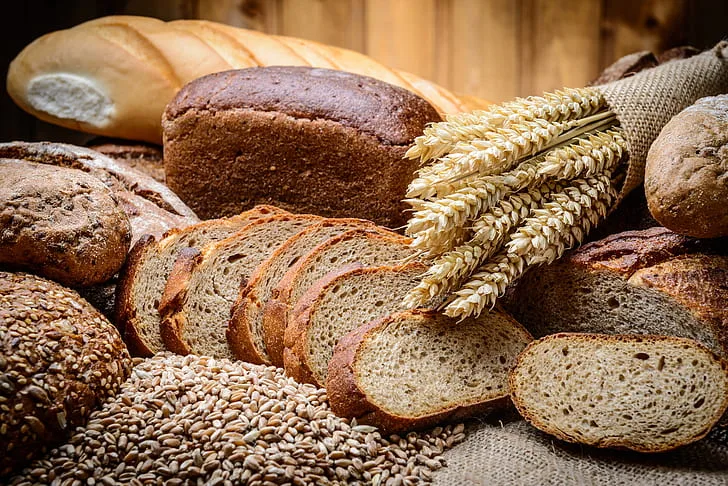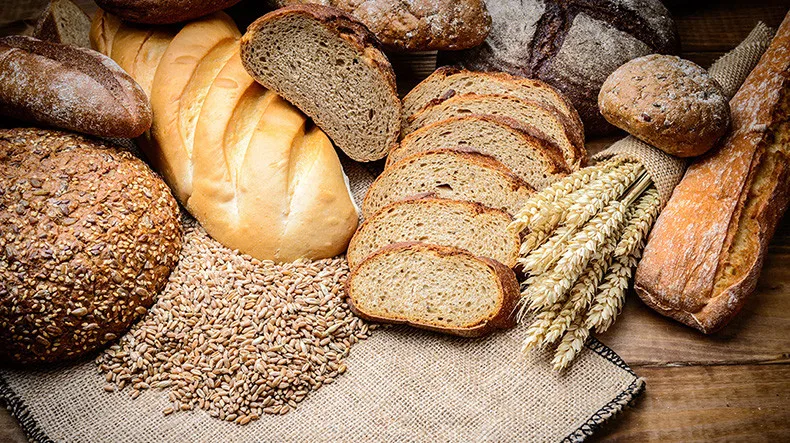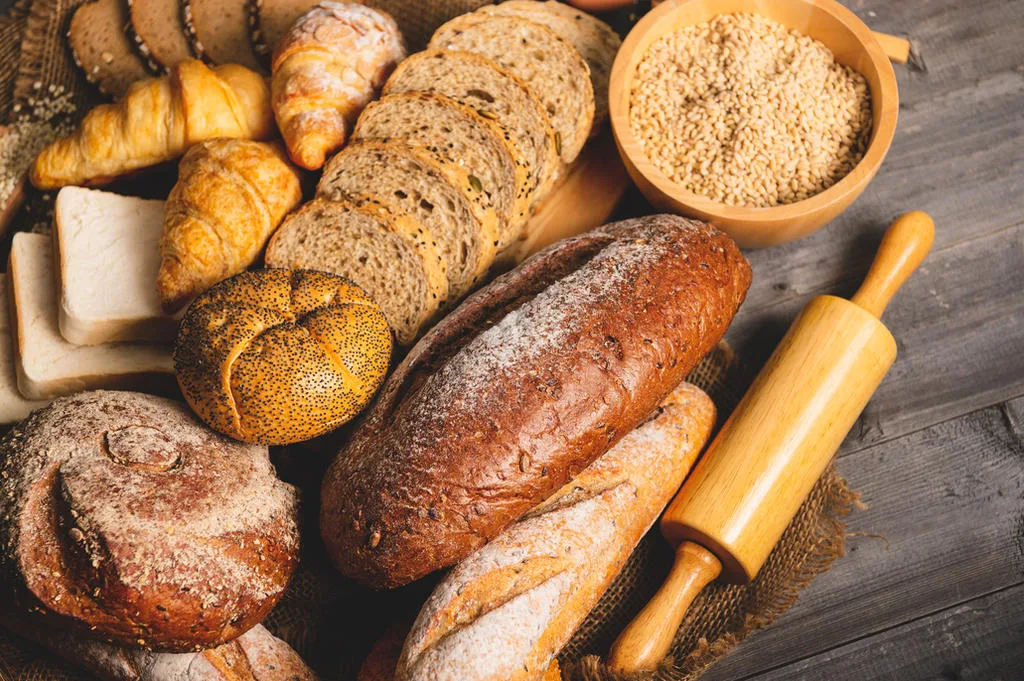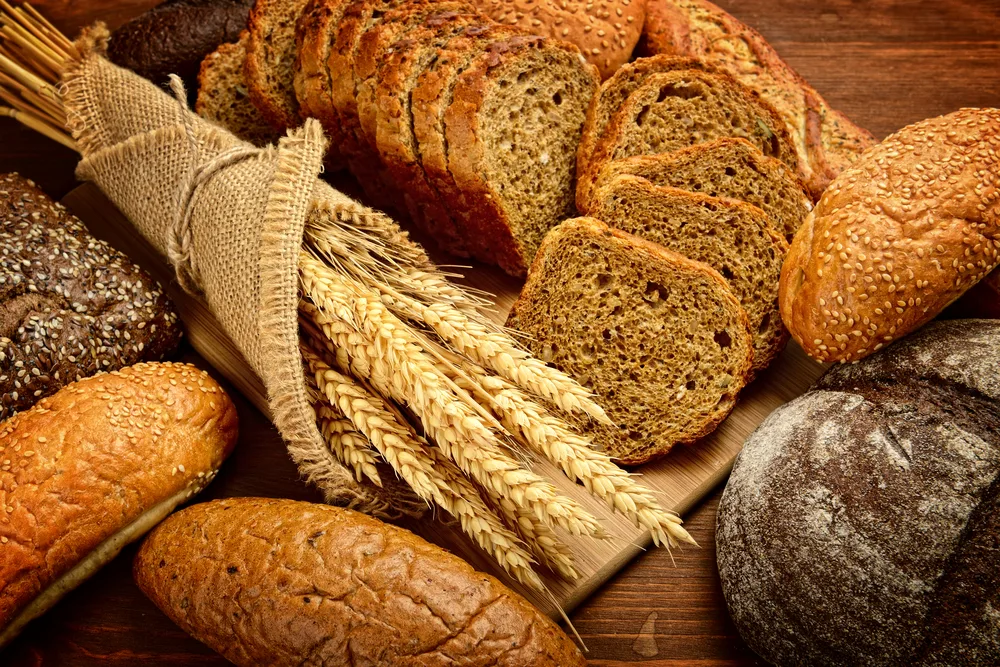In an era where healthy living and fitness have taken center stage in many people’s lives, understanding the influence of our dietary choices is more important than ever. Central to this is the role of gluten, a protein found in wheat, rye, and barley, that has a significant effect on our body’s functionality and weight. This is particularly true for women, who often contend with unique health and dietary challenges. This piece aims to demystify gluten, tackle popular misconceptions about a gluten-free diet for weight loss, and offer practical tips for women transitioning to a gluten-free lifestyle.
Understanding Gluten and Its Effects on Women’s Bodies
Understanding Gluten and Its Effects on Women’s Bodies
Gluten is a mixture of proteins found in wheat and related grains, including barley and rye. Its role in diets is significant. However, the effects of gluten on the body, particularly in women’s bodies, can be considerably diverse. Its intake can lead to weight gain, inflammation, and subsequent health problems for some individuals.
Common Sources of Gluten in Food
Common foods that contain gluten include breads, beers, cakes, pies, cereals, pastas, food coloring, and certain sauces and dressings. Gluten may also be found in less obvious products, such as oat-based products, due to cross-contamination during processing. The protein helps foods maintain their shape, acting as a glue that holds food together.
Gluten and Weight Gain
While gluten does not directly cause weight gain, it’s often found in high-calorie, high-carb foods. Excessive consumption of these types of food can contribute to weight gain. People might notice that when they decrease their consumption of gluten-based foods, they also decrease their overall calorie consumption. This change often results in weight loss, although it’s due to consuming fewer calories rather than the consumption of gluten itself.
Celiac Disease vs Non-Celiac Gluten Sensitivity
People with celiac disease must completely avoid gluten, as they face serious health complications from ingesting the protein. When someone with celiac disease consumes gluten, it triggers an immune response that damages the small intestine. This can lead to complications such as iron deficiency anemia, osteoporosis, and infertility and miscarriage.
Non-celiac gluten sensitivity is different from celiac disease. People with this condition do not test positive for celiac disease or a wheat allergy, but gluten consumption causes them discomfort. Symptoms often include abdominal pain, bloating, diarrhea, constipation, headaches, and fatigue.
A Closer Look at the Gluten-Free Diet and Weight Loss in Women
Women are more susceptible to celiac disease, with the CDF Medical Advisory Board noting that about 60-70% of people afflicted with the condition are females. To combat this, a dietary shift is often required. Incorporating a gluten-free diet aids in cutting back on processed foods that are typically high in sugars and fats. Instead, the diet encourages consumption of healthier options such as fruits, vegetables, lean proteins, and gluten-free grains like quinoa, rice, or corn. This dietary adjustment not only facilitates lower calorie intake and consequent weight loss, but improves overall nutritional profile as well.
Despite the beneficial possibilities, it’s crucial to remember that not all gluten-free products contribute positively to health. Some processed gluten-free foods carry high sugar and fat content, leading to potential weight gain if consumed excessively. Therefore, women targeting weight loss through a gluten-free diet need to be vigilant when selecting their meals.
Simply eliminating gluten does not automatically lead to weight loss. To truly enjoy the benefits, one needs to embrace mindful eating, incorporate regular physical exercise, and maintain a balanced, healthy lifestyle. Prior consultation with a healthcare provider or a dietitian is advisable before making any substantial changes to one’s diet. They can offer accurate guidance to ensure necessary nutrients are not overlooked, and weight loss goals are achieved in a healthy manner.

Transitioning to a Gluten-Free Diet
Unveiling the Gluten-Free Diet and its Relationship with Weight Loss
At its core, a gluten-free diet is centred around eliminating gluten, a protein found in barley, wheat, and rye. Originally designed to cater to individuals with celiac disease, an autoimmune disorder, this diet has now been widely adopted by individuals striving for weight loss and overall improved health. Losing weight can indeed be a potential byproduct of following a gluten-free diet, especially for women. This is primarily due to the fact that this diet commonly involves cutting out high-calorie, carbohydrate-rich foods such as bread, pasta, pastries, and particular processed foods.
Transitioning to A Gluten-free Diet
Starting and maintaining a gluten-free diet requires commitment and necessary strategy as it involves adjusting your daily food and eating habits. The first step in this transition is to become skilled at reading food labels. You must look for items that have been labeled as “gluten-free.” But be cautious; even though these foods don’t contain gluten, they may be high in sugars or unhealthy fats, prompting weight gain instead of contributing to weight loss.
Finding Gluten Alternatives
Replacing gluten-containing foods with healthier alternatives is fundamental. Opt for naturally gluten-free grains like brown rice, quinoa, or buckwheat, and starchy vegetables like potatoes and corn. This strategy helps to provide the carbohydrates that your body still needs to function optimally without including gluten in your diet. Fruits, vegetables, lean proteins, and healthy fats are also naturally free of gluten and should become staple parts of your gluten-free diet.
Maintaining A Balanced Diet
While transitioning to a gluten-free diet, nutritional balance is crucial. Eliminating gluten-containing foods shouldn’t mean missing out on essential nutrients. For example, many foods containing gluten are also primary sources of dietary fiber. Consequently, you might need to look for alternative fiber sources to maintain gut health and manage weight. Consider incorporating foods like legumes, fruits, vegetables, and gluten-free whole grains.
Unraveling the Myth of Gluten-Free Foods Being Automatically Healthier
Despite the prevailing belief, gluten-free food isn’t always healthier. Some processed gluten-free products contain high amounts of sugar, unhealthy fats, and artificial additives to improve taste and texture since gluten has been removed. Therefore, depending solely on such products can decrease the nutritional quality of your diet and counteract your weight loss efforts.
Low in Calories Doesn’t Always Mean Gluten-free
Moreover, gluten-free doesn’t always equate to low-calorie content. Many gluten-free foods and snacks are high in calories and can scupper a dieter’s weight-loss efforts. Instead of focusing on the mere absence of gluten, it’s essential to pay attention to the nutritional content of the food.
Adopting a gluten-free diet, complemented with routine exercise and adequate hydration, holds potential as an effective weight-loss approach for many women. However, remember that each individual’s body reacts differently to changes in diet. What can be effective for one may not necessarily be as effective for another. Always be conscious of your bodily reactions and make adjustments to your diet as necessary. It’s equally crucial to seek professional medical advice before making any radical alterations to your diet. This safeguards you from potential dangers and ensures you follow a nutritionally balanced, health-oriented gluten-free diet that addresses your unique needs.

Creating a Gluten-Free Meal Plan for Weight Loss
Decoding the Gluten-free Diet
Commonly found in wheat, barley, and rye-based products, gluten is a combination of different proteins. There are individuals who are sensitive or intolerant to gluten and many others who embrace a gluten-free lifestyle either for perceived health benefits or for weight loss purposes. It’s important to note that simply following a gluten-free diet isn’t an automatic ticket to weight loss. However, making thoughtful and health-centric choices while on this diet does have the potential to effectively manage or even reduce weight.
Designing a Gluten-Free Meal Plan
The core components of a gluten-free weight loss plan should be centered around lean proteins, fruits, vegetables, and gluten-free grains while avoiding processed foods that often contain hidden gluten. Dedicating some time to meal planning can help ensure balanced nutrition throughout the week.
For breakfast, consider options like gluten-free oats with fresh fruit, two-egg omelet with assorted veggies, or a smoothie made with leafy greens, a banana, chia seeds, almond milk, and a scoop of gluten-free protein powder.
For lunch and dinner, focus on lean meats and fish, plenty of non-starchy vegetables, and gluten-free whole grains, like brown rice or quinoa. Options might include a grilled chicken salad with lots of veggies and a homemade vinaigrette, a piece of grilled salmon with a side of steamed broccoli and quinoa, or a hearty vegetable and bean soup with a side of gluten-free whole grain bread.
Snacks should also be nutrient-dense, like a piece of fruit and a handful of nuts, hummus with raw veggies, or a slice of turkey wrapped around a piece of cheese.
Sample Gluten-Free Menu for Weight Loss
Here is a three-day gluten-free meal plan aimed at weight loss:
- Day 1:
- Breakfast: Gluten-free oats with sliced berries
- Lunch: Mixed vegetable salad with grilled chicken and homemade balsamic vinaigrette
- Snacks: Hummus and carrot sticks
- Dinner: Grilled fish with steamed broccoli and brown rice
- Day 2:
- Breakfast: Two-egg spinach and mushroom omelet
- Lunch: Quinoa salad with mixed vegetables and chickpeas
- Snacks: A piece of fresh fruit and a handful of almonds
- Dinner: Grilled turkey with a side of mixed veggies and sweet potato
- Day 3:
- Breakfast: Smoothie made with greens, banana, chia seeds, and gluten-free protein powder
- Lunch: Lentil soup with a side of gluten-free bread
- Snacks: A slice of turkey wrapped around a piece of cheese
- Dinner: Stir-fried tofu with vegetables and quinoa
Tips for Portion Control
Regardless of the diet you’re following, portion control is key for weight loss. Fill half your plate with fruits and vegetables, a quarter with proteins, and a quarter with gluten-free grains. Limit sauces, dressings, and high-fat toppings, and feed your body every couple of hours with small meals and snacks to prevent overwhelming hunger that can often lead to overeating. Also, try to drink plenty of water throughout the day, as thirst can often be mistaken for hunger.
A Comprehensive Take on Gluten-Free Weight Loss
Adopting a mindful approach to a gluten-free diet can yield effective weight loss outcomes similar to other dietary plans. The key lies in maintaining balanced nutrition, controlling portion sizes, incorporating regular exercise, and leading an overall active lifestyle. Beware of losing weight too quickly as it can negatively affect your health. Aim for a slow, steady, and sustainable weight loss of about 1-2 pounds a week. Resist the allure of fleeting diet trends in favor of lifelong modifications to your eating habits that promote healthy and enduring results.

Combining Gluten-Free Diet with Exercise for Optimum Weight Loss
Decoding the Relation Between a Gluten-Free Diet and Weight Loss
Essentially, a gluten-free diet is a nutrition strategy that excludes foods rich in gluten, a protein prevalent in wheat, barley, and rye. This dietary practice is crucial for those diagnised with celiac disease, an autoimmune disorder where gluten intake can damage the small intestine. Recent research sheds light on its promising advantages for weight loss, particularly for women who combine it with regular exercise. This further supports the idea of a holistic approach to weight management.
The Role of the Gluten-Free Diet in Women’s Weight Loss
Unlike other fad diets, a gluten-free diet doesn’t just focus on reducing body weight but also on improving overall health. Gluten consumption has been linked to inflammation and bloating, which may cause weight gain. By eliminating gluten, the body experiences less inflammation and bloating, which could potentially aid in weight management.
Research has found that following a gluten-free diet can sometimes lead to a reduction in processed foods, as many of these contain gluten. With fewer processed foods, the body then tends to lean towards weight loss.
Exercise Combining with Gluten-Free Diet for Optimum Weight Loss
Incorporating exercise with a gluten-free diet is essential for the best weight loss results. Exercise boosts metabolism, and when coupled with a gluten-free diet, it may maximize the body’s ability to burn fat.
Weight-bearing exercises can be particularly effective. Walking, jogging, or lifting weights both can help speed up your metabolism while building muscle mass, thereby accelerating weight loss.
Staying Motivated in your Gluten-Free Weight Loss Journey
Staying motivated in a weight loss journey can be challenging. It might help to remember that losing weight isn’t just about looking good; it’s also about leading a healthier, more satisfying life. Setting manageable goals can be an excellent way to keep your spirits high. Make these goals specific and visible; it might be losing a certain amount of weight within a specific timeframe or being able to run a certain distance.
Remember also to reward yourself when you reach a milestone. It doesn’t have to be massive; celebrating small victories with non-food related treats can make a huge difference in keeping your morale high and staying on track.
Making Gluten-Free Choices
Going gluten-free doesn’t mean you are restricted to eating bland foods. There are plenty of tasty options available. Replace wheat-based foods with naturally gluten-free foods like vegetables, fruits, lean proteins, and dairy products.
Also, there is an increasing variety of manufactured gluten-free options, like bread and pasta. Be sure to check these products’ nutrition labels, as some may still be high in calories, fat, and sugar.
The Rewarding Path: Gluten-free Diet and Weight Loss in Women
Embracing a gluten-free diet can be a transformative journey, encouraging more mindful eating habits, enhanced wellness, and an overall better lifestyle. However, it’s not just about excluding gluten. Achieving weight loss with a gluten-free diet rests upon the broader framework of regular physical activity and a balanced, nutritious diet with high-quality, whole food sources. This helps maintain overall health and boost your motivation as you embark on this invigorating wellness journey.

Photo by thevoncomplex on Unsplash
Success Stories and Real-life Examples of Weight Loss through Gluten-Free Diet
A Success Story Illustrating the Power of a Gluten-Free Diet: Jennifer’s Weight Loss Journey
Meet Jennifer, a woman just like you who was struggling to get rid of stubborn weight. Like many before her, she had tried several fitness routines, fad diets, even skipping meals, but nothing seemed to work. But her life took a turn when she discovered a blog touting the benefits of a gluten-free diet for weight loss.
On trying out a gluten-free lifestyle, Jennifer found that she was, in fact, moderately intolerant to gluten. Going gluten-free was a game-changer for her, reducing her previously unexplained bloating and digestive discomfort. This lifestyle change pushed her to develop an understanding of the food she consumed and prompted her to substitute processed foods with whole, gluten-free alternatives like quinoa, rice, fresh fruits, and vegetables.
In one year, Jennifer incredibly shed 60 pounds by adhering to her gluten-free plan accompanied by moderate exercise. Jennifer believes that her dramatic weight loss was primarily due to her shift to a gluten-free diet. Jennifer’s success story illustrates how efficiently and profoundly a gluten-free diet can contribute to weight loss.
Transforming Lives: Maria’s Gluten-Free Success
Maria’s success story is another inspiring example of weight loss catalyzed by a gluten-free diet. For Maria, excessive weight was not just a physical burden, but an emotional one too. When her doctor mentioned that she was on the verge of becoming diabetic, she knew she had to make a drastic lifestyle change.
Taking her doctor’s advice, Maria started a gluten-free diet, coupled with a balanced exercise routine. Gluten-rich foods like wheat, rye, and barley were replaced with gluten-free alternatives such as brown rice, millet, and buckwheat. She also shifted towards eating whole foods – fruits, vegetables, lean meats, and fish – to keep her diet varied and nutritionally balanced.
After six months on her new regimen, Maria was able to lose over 50 pounds. Beyond the weight loss, she managed to lower her blood sugar levels to a healthier range, effectively escaping the threat of diabetes.
Inspiring other Women: Rebecca’s Path to Weight Loss
Rebecca had struggled with her weight and body image ever since she was a teenager. Finally, she was introduced to the idea of a gluten-free diet by a close friend who had seen remarkable weight loss results.
For Rebecca, the gluten-free diet worked because it forced her to pay closer attention to what she was eating and to make better food choices. She substituted gluten-rich foods with gluten-free whole grains and starchy vegetables, which provided her with adequate fiber and kept her feeling satiated for longer periods.
Within a year, Rebecca managed to lose 45 pounds, reducing her risk of developing obesity-linked health conditions and boosting her confidence. Rebecca’s story serves as an inspiration to those seeking a sustainable and healthy weight loss solution.
These real-life examples show that adopting a gluten-free diet, along with a balanced lifestyle, can lead to significant weight loss. These women’s journeys highlight the potential benefits of a gluten-free diet and serve as motivation for all navigating the often arduous path of weight loss.
Embracing a gluten-free lifestyle is not just a trend, but more importantly, it can be a step towards a healthier life particularly for those struggling with celiac disease or gluten sensitivity. Combined with regular exercise, a balanced, gluten-free diet can be an effective pathway to sustainable weight loss. Noting the success of many women who have trodden this path can act as a beacon of inspiration and motivation for others. However, equally important is the understanding that every person’s body is unique, and what works for one might not work for all. So embark on your healthy journey informed, prepared, and guided by the knowledge that you are taking a step towards a healthier future.
Writio: An intelligent content writer for publishers and bloggers. Discover its impeccable articles accompanied by customized styles and relevant images. Embrace the words of Writio! This webpage was crafted by Writio.
Thank you for reading this post, don't forget to subscribe to our free newsletter
!
